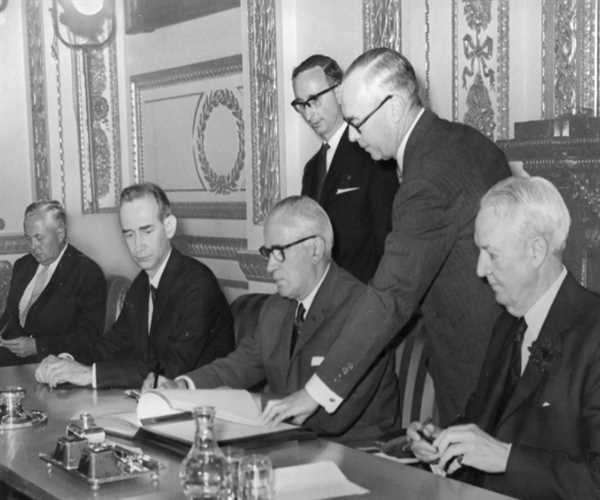The world has been asking itself this question for years now, ever since it was revealed that Iran had been secretly developing a nuclear program.
The answer, of course, is complicated. On the one hand, the Non-Proliferation Treaty (NPT) of 1968 does give Iran the right to develop a nuclear weapon for peaceful purposes. On the other hand, the International Atomic Energy Agency (IAEA) has repeatedly called on Iran to suspend its nuclear program and comply with international inspections.
So, what exactly is the truth? Is it legal for Iran to develop nuclear weapons?
The short answer is yes, but the longer answer is much more complicated.
The Non-Proliferation Treaty
The Non-Proliferation Treaty (NPT) is the international treaty that was created in 1968 in order to prevent the spread of nuclear weapons. The treaty recognizes the right of all countries to develop nuclear technology for peaceful purposes.
However, the treaty also requires signatories to agree to certain safeguards in order to prevent the spread of nuclear weapons. These safeguards include allowing international inspectors to verify that nuclear facilities are being used for peaceful purposes only.
Iran is a signatory of the NPT and, as such, is entitled to develop a nuclear weapon for peaceful purposes. However, the IAEA has repeatedly called on Iran to suspend its nuclear program and allow international inspectors to verify that its nuclear facilities are being used for peaceful purposes only.
The IAEA

The International Atomic Energy Agency (IAEA) is the international body that is responsible for overseeing the implementation of the NPT. The IAEA is tasked with ensuring that all signatories of the NPT are in compliance with the treaty.
In order to do this, the IAEA conducts regular inspections of nuclear facilities in all signatory countries. These inspections are designed to verify that nuclear facilities are being used for peaceful purposes only.
The IAEA has conducted several inspections of Iran's nuclear facilities and has repeatedly called on Iran to suspend its nuclear program and allow international inspectors to verify that its nuclear facilities are being used for peaceful purposes only.
The IAEA's most recent report on Iran's nuclear program, released in November of 2011, found that Iran had made 'significant progress' in its nuclear program and had 'failed to comply' with several international nuclear agreements.
The IAEA's report also found that Iran was continuing to enrich uranium, a key component of nuclear weapons, despite repeated calls from the international community to suspend its enrichment program.
The IAEA's report concluded that Iran's nuclear program 'poses a serious challenge to the international community' and that Iran must 'comply fully and without delay' with all international nuclear agreements.
The IAEA's report is the most recent in a series of reports that have called on Iran to suspend its nuclear program. However, Iran has refused to do so and has continued to enrich uranium.
The Bottom Line
The bottom line is that, yes, Iran does have the right to develop a nuclear weapon for peaceful purposes. However, the IAEA has repeatedly called on Iran to suspend its nuclear program and allow international inspectors to verify that its nuclear facilities are being used for peaceful purposes only.